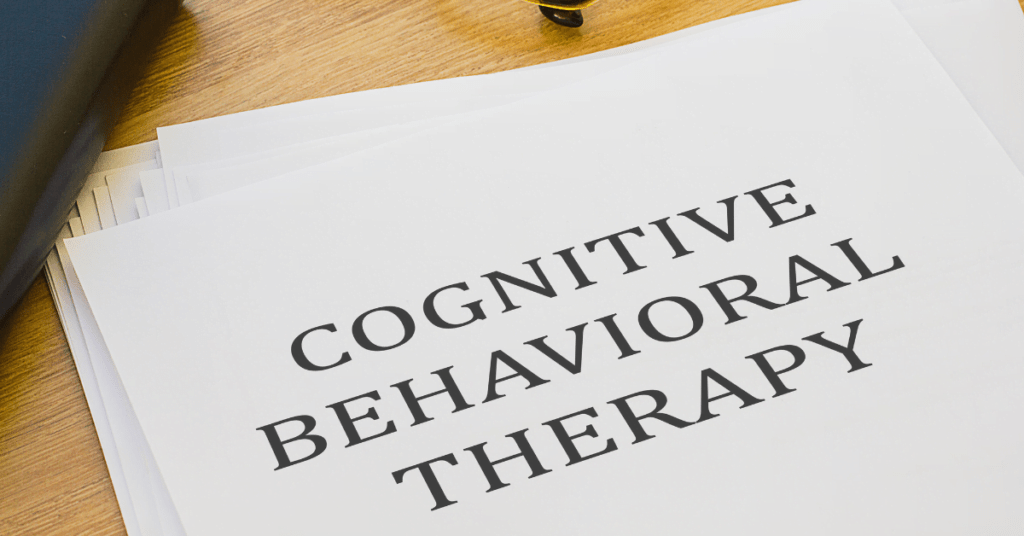Contents
What Is Cognitive-Behavioral Therapy?
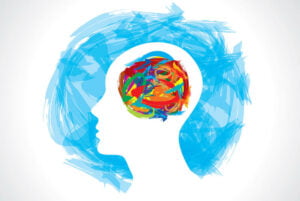 Cognitive-behavioral therapy is one of the most effective treatment methods for mental health problems, according to research. It can help you process emotions more effectively and change how your brain reacts to negative thoughts or stressful situations. This therapy is usually short-term and goal-focused.
Cognitive-behavioral therapy is one of the most effective treatment methods for mental health problems, according to research. It can help you process emotions more effectively and change how your brain reacts to negative thoughts or stressful situations. This therapy is usually short-term and goal-focused.
Cognitive-behavioral therapy has three basic steps. The goal of identifying distorted thinking is to learn how your thoughts affect the way you feel. It also aims to change negative or unhelpful thoughts into real ones. You also work on changing any behaviors that are harmful—or helpful—to yourself.
Steps of Cognitive-Behavioral Therapy
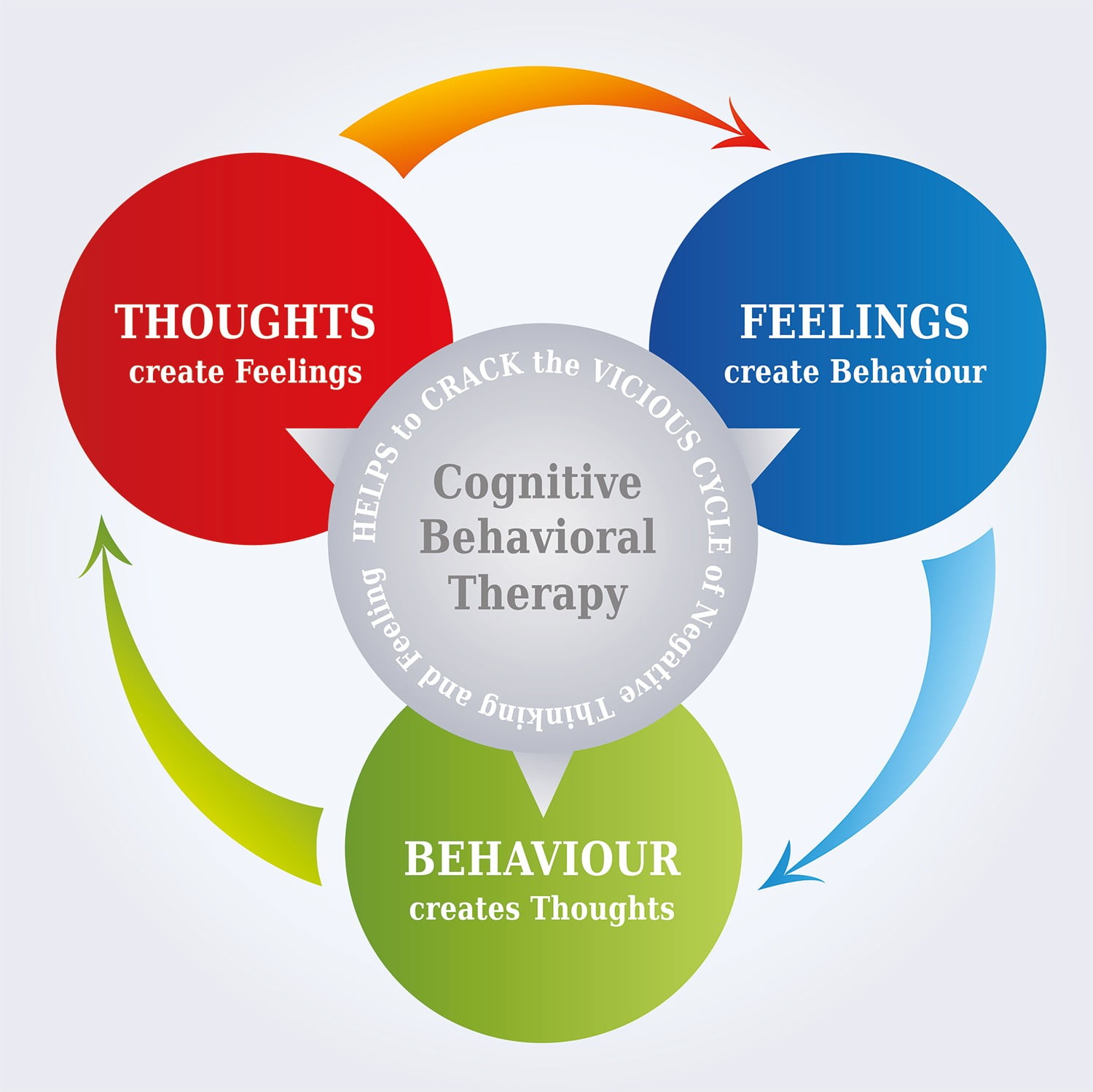
Cognitive-behavioral therapy (CBT) is a psychotherapy treatment that can be used to help individuals with certain mental conditions. These are some of the steps of Cognitive-behavioral therapy:
Identify Distorted Thinking
This is an important step in Cognitive-behavioral therapy. It means learning to recognize when you are using “negative or unhelpful thoughts” so you can change them. Changing the way you think is not easy, but it’s possible with practice and patience.
Negative And Unhelpful Thoughts
Everyone has negative thoughts sometimes. It’s normal to feel that way in certain situations. However, if your negative thinking becomes ‘distorted thinking’ then this may be indicative of an underlying mental health issue. These issues are such as depression or anxiety. This could benefit from further treatment by a qualified therapist. The first step towards managing these feelings is being able to identify how they affect your mood and behavior on a daily basis. This is through keeping track of any emotional changes throughout each day. This is along with the taking of what was happening during this time.
Learn How Thoughts Affect Emotions & Behavior
This step means learning how your thinking affects the way you feel and act. It is important to be able to identify not only negative thoughts that are unhelpful but also positive ones. These are the positive thoughts that can help boost confidence, improve mood or provide motivation.
Identify And Change Any Behaviors
This step involves learning about behaviors such as avoidance of certain situations. These can be due to feelings of anxiety (phobias), compulsions, emotional eating, or even self-harm among others. It is so that they may be changed into healthier alternatives. These can be through activities such as meditation techniques for stress management. Another option can be substituting harmful habits with more beneficial ones. These are like exercise instead of snacking when feeling low on energy levels. The aim here is always towards practicing a healthy balanced lifestyle.
Cognitive-Behavioral Therapy Techniques
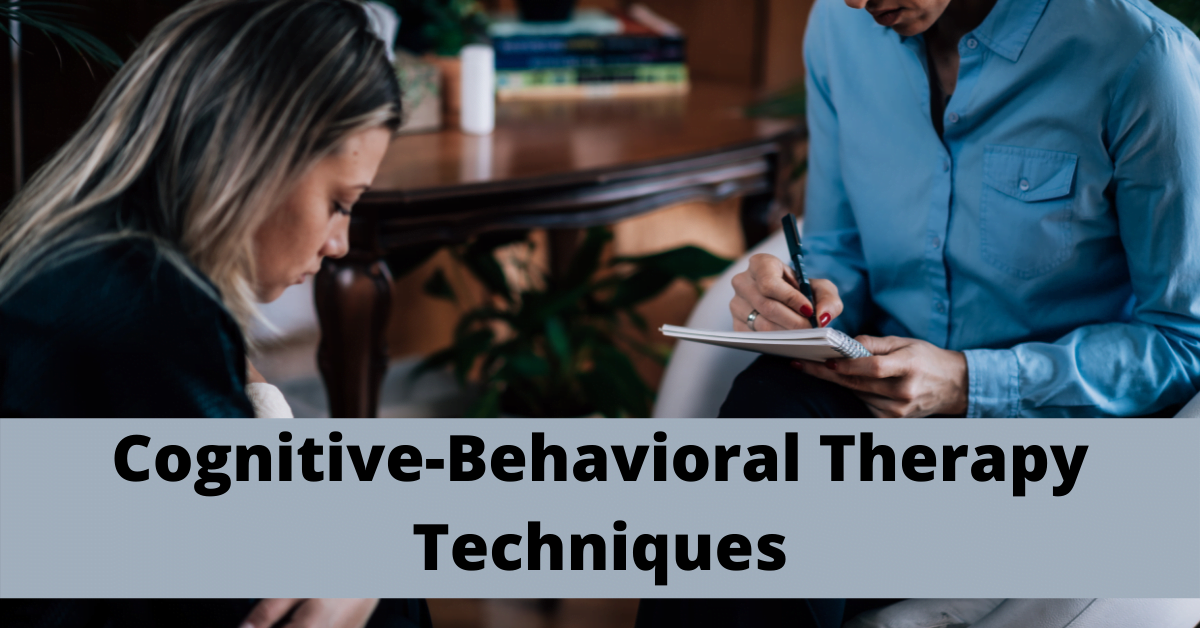
There are many Cognitive-behavioral therapy techniques that can help individuals with certain mental conditions, including anxiety and depression. The most common of these are:
Keeping Journal To Track Feelings
Keep a track of your feelings throughout each day along with the taking of what was happening during this time. This allows you to pinpoint when negative thinking occurs. This is so it becomes easier to identify which thoughts are real or distorted ones. It also helps you learn new ways of coping with stressful situations. This is instead of relying on unhealthy behaviors like self-harm or substance abuse. These will make your disorder worse in the long run if not properly treated. These can be through appropriate measures such as Cognitive Behavioral Therapy ( CBT ).
Using A Thought Diary
A thought diary is another CBT technique. It means keeping track of specific events throughout the day. You can record how you felt about them. It can be along with your thoughts surrounding these feelings at that time. This helps bring to light any unhelpful thinking patterns which can be addressed through Cognitive behavioral therapy techniques. These can be challenging negative or unrealistic thoughts. This is by turning them into more positive ones for example.
Replacing Thoughts
This is a very common Cognitive behavioral therapy technique. It involves challenging negative thoughts by turning them into more positive ones. For example, using things like problem-solving to look at the situation in a different way. It is rather than assuming the worse or seeing yourself as being unworthy of help. This is when you are feeling really low on energy levels due to depression.
Using Behavioral Experiments And Exercises
There are many CBT techniques that can be used with individuals suffering from mental conditions such as anxiety and depression. These are including some which use behavioral experiments and exercises. These often involve practicing new behaviors through exposure therapy until they become habitual. For example, learning how to ride a bike. This enables you to learn about yourself and gives you a greater sense of control over your life in general.
Solving Problems Together
This is a CBT technique in which the therapist and patient work together to solve problems. It helps the individual identify their own coping strategies. This is while dealing with difficult or stressful situations—learning from mistakes by giving themselves consequences instead of relying on unhealthy behaviors like substance abuse. For example. In this way, they will learn how to manage any negative feelings better through something more positive. These are like reading a book, going for a walk, or writing down thoughts in a journal.
Is Cognitive-Behavioral Therapy Effective?

This therapy is often considered to be one of the most effective treatments for mental conditions that many people suffer from today.
Cognitive Behavioral Therapy has been shown in many studies to be an effective treatment for a large number of mental conditions. Many people have found that it helps them manage symptoms and lead a more healthy life without resorting to negative coping mechanisms such as substance abuse or self-harm behavior like cutting yourself out of feelings of being overwhelmed by everything around you.
This is because Cognitive Behavioral Therapy helps you to understand yourself better by looking at things differently and learning about your mind including how it processes information; this enables you to learn about yourself through positive behavior patterns of thinking instead of resorting to negative ones that can worsen mental conditions over time.
Benefits of Cognitive Behavioral Therapy
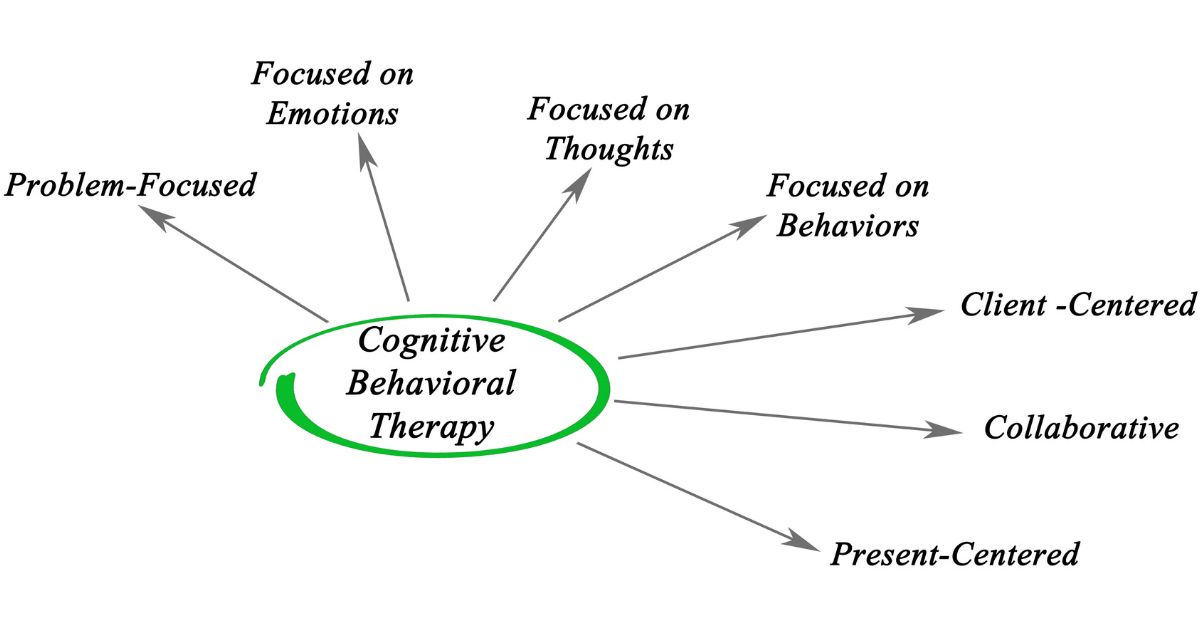
The goal of this type of therapy is to provide therapeutic techniques and exercises so that the individual can learn how to change their thoughts and behaviors in order to improve their condition.
These are some benefits of Cognitive-behavioral therapy:
Decreases Chances of Relapse
A study found that those who had Cognitive-behavioral therapy were less likely to have a relapse or require further treatment than those with medication only.
Increases Self-Esteem
Through the use of Cognitive Behavioral Therapy techniques such as challenging negative thoughts by turning them into more positive ones, for example—which helps you learn new ways of coping with stressful situations instead of relying on unhealthy behaviors like substance abuse—you can develop greater levels of self-esteem and alleviate feelings of being unworthy due to mental conditions such as anxiety and depression. This also gives you a sense of control over your life in general which is what many people suffering from these disorders need most.
Increases Self-Awareness
Cognitive Behavioral Therapy techniques help develop greater levels of self-awareness and insight into why certain behaviors occur—helping individuals with mental conditions understand their own needs much better so that emotional responses can be managed effectively without resorting to unhelpful coping mechanisms. This also helps create an awareness regarding the way your mind works including how it processes information; this enables you to learn about yourself by looking at things differently and finding healthier alternatives to any unhealthy or unhelpful behaviors that you may have.
Reduces Anxiety And Depression Symptoms
Cognitive Behavioral Therapy has been shown in many studies to be an effective treatment for anxiety, depression, addiction problems, eating disorders—helping people with mental conditions learn new coping strategies instead of relying on negative thinking patterns which can contribute towards furthering these conditions over time through avoidance techniques such as substance abuse. By identifying the thoughts behind your feelings surrounding situations it becomes easier to find more positive ways of dealing with them so that they don’t become overwhelming; this helps reduce symptoms often associated with anxiety and depression including self-harm behavior like cutting yourself due to feeling overwhelmed by everything around you.
Reduces Alcohol and Drug Abuse
Studies have found that Cognitive Behavioral Therapy can reduce rates of alcohol-related problems as well as drug abuse. One study showed that those who received cognitive behavioral therapy were less likely to relapse than those with medication only; this is because the individual learns how to develop healthier coping strategies such as learning from mistakes by giving themselves consequences instead of relying on substance abuse which helps them manage negative feelings better in a healthy way without resorting to unhealthy behaviors like cutting yourself or abusing drugs and/or alcohol.
Improves Self-Control
Cognitive Behavioral Therapy teaches people with mental conditions new ways of thinking through techniques such as challenging unhelpful thoughts and replacing them with more positive ones—helping you learn new behavior patterns regarding the way you act and think about things. For example, if your thoughts are telling you that you can’t do something because of mental conditions like anxiety or depression—Cognitive Behavioral Therapy teaches individuals how to replace this negative thinking with positive ones which help build self-control; self-control is something people suffering from these disorders desperately need in order to function day to day without feeling overwhelmed by life’s challenges.
Helps You Find Your True Self
Cognitive Behavioral Therapy helps people with mental conditions avoid avoiding things and confront their fears so that they can find out what lies beneath the surface of them; this allows you to change unhelpful behaviors such as self-harming or abusing drugs and/or alcohol by learning how to cope in more positive ways. This also gives you a better understanding of who you are on an emotional level which will help improve relationships, social skills both at home and at work, academic performance—helping individuals feel less overwhelmed emotionally when facing challenges in life.
Improves Relationships And Social Skills
One study showed that Cognitive Behavioral Therapy helped reduce rates of violence towards others after six months showing great promise for those suffering from personality disorders such as anger problems and those who have committed violent crimes. By working with a therapist you can learn how to build on your social skills, relationships both at home and work—helping you improve the way that others perceive you due to improved self-control which may be lacking in some individuals.
Conclusion
If you are struggling with anxiety, depression, or any other mental health issue that affects your daily life, consider seeking professional help. Cognitive-behavioral therapy is a type of psychotherapy tailored to the way people think and behave in order to improve their quality of living.
If you are looking for affordable Online Counseling MantraCare can help: Book a trial therapy session
